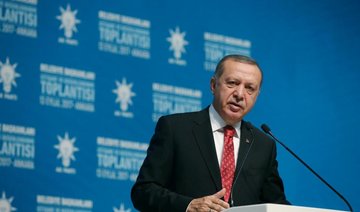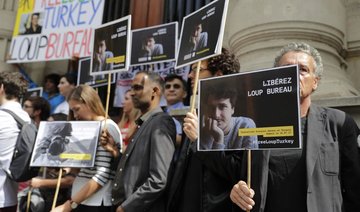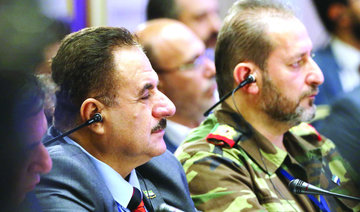ISTANBUL: Students in Turkey are returning to school Monday where they will be taught evolution for the last time in their biology classes. Next fall, evolution and Charles Darwin will be scrapped from their textbooks.
Turkey has announced an overhaul of more than 170 topics in the country’s school curriculum, including removing all direct references to evolution from high school biology classes.
The upcoming changes have caused uproar, with critics calling them a reshaping of education along the conservative, Islam-oriented government’s line. Opposition parties and unions have organized protests against the changes, demanding that Turkey provide a scientific, secular education for its students. Lawmakers have also opposed the new curriculum in parliament.
Education Minister Ismet Yilmaz said the new “value-based” program had simplified topics in “harmonization with students’ development.” He said evolutionary biology, which his ministry deemed was too advanced for high school, would still be taught in universities.
Evolution has been taught in 12th-grade biology classes in a chapter called “The Beginning of Life and Evolution.” The unit will be replaced by “Living Beings and the Environment” in September 2018 where evolutionary mechanisms like adaptation, mutation and natural and artificial selection will be taught without a mention of evolution or Darwin.
Yilmaz said students would learn the nature of being, including “evolution and other ontological opinions” in 11th-grade philosophy.
Other contentious changes include teaching about jihad or holy war in religion classes as the “love of homeland,” and a lessened emphasis on Mustafa Kemal Ataturk, the founder of the Turkish republic who is revered by Turkey’s secularists. Ataturk instituted the separation of state and religion, but President Recep Tayyip Erdogan’s party has challenged that strict split with a more religious approach.
Students will also learn about the groups that Turkey is fighting: the Kurdistan Workers’ Party or PKK, the Daesh group and the network of US-based cleric Fethullah Gulen.
Turkey’s education system is already reeling from the trauma of the failed July 15, 2016 coup attempt — and the new scholastic program highlights that government victory as “a legendary, heroic story.”
More than 33,000 of the nation’s teachers — about 4 percent — have been purged in a government crackdown after the coup, nearly 5,600 academics have been dismissed and some 880 schools shuttered for alleged links to terror groups.
Many who lost their jobs say the government is using the failed coup as a way to silence its critics.
Turkey blames Gulen for orchestrating the coup, which he denies.
The belief in creationism — that life originated and changed through divine creation — is widespread in Turkey. Many educators are worried because Turkish students are already globally ranked “below average” in science, mathematics and reading compared to their peers across the world, according the Organization for Economic Co-operation and Development.
Mehmet Somel, the head of the Ecology and Evolutionary Biology Society of Turkey, says Turkish students will be unable to understand even basic science if their studies make no direct reference to evolution.
“We won’t be able to produce good doctors, good scientists, when students graduate from high school with this level of ignorance,” Somel said.
Studying evolution allows future doctors to see the causal link between, for example, resistant strains of microbes and excessive antibiotic use, he said.
Cagri Mert Bakirci, a biologist who founded an online learning project called the “Tree of Evolution,” calls the ministry’s claim that evolution is too difficult for Turkish students an “insult” to them and their teachers. His volunteer project reaches nearly 8 million people each week over Facebook with videos and articles.
“I can explain evolution in 10 seconds,” he said.
The two biologists say evolution was never adequately taught in Turkish public schools in the first place. But Somel says the mention of evolution in past programs at least meant that teachers could introduce the topic.
Orkide Kuleli, a retired pharmaceutical professional, said her 15-year-old daughter will now have to learn about Darwin by herself. She was worried, however, about a more insidious change that she says is taking place in Turkey’s education system.
“The goal is to transform society politically and ideologically rather than develop it through science,” she said. “A generation that does not question is one that blindly obeys.”
Erdogan has repeatedly voiced his desire for a “devout generation.” Previous changes to the education system have included an increase in public schools providing religious studies and more elective classes on Islam.
The new curriculum will be rolled out in steps and assessed. This year, students in first, fifth and ninth grades will use the updated program. Other classes, including the changed biology program, will be fully integrated next fall.
The education minister has called the uproar on evolution “partisan,” arguing that the new curriculum had been open to input. The head of Turkey’s education board, Alpaslan Durmus, insisted it was “utterly ignorant” to say evolution has been scrapped when its mechanisms are still being taught.
Latif Selvi of the pro-government Educators Trade Union, which was involved in drafting the changes, also called the widespread criticism of the plan “ideologically motivated.”
“My opinion, based on an evaluation with evolutionary teachers, is that this change is positive,” Selvi said.
Somel, the biologist, believes that self-censorship may be at work rather than a top-down decision to toss out evolution entirely.
“There is serious fear in universities and in the ministry of education that one may be pushed out, and evolution has become one of those scary themes,” he said.
He said Turkish academics now avoid using the word evolution in project proposals even while studying evolutionary topics. This spring, the Museum of Natural History in the capital of Ankara put new stickers on posters changing the word “evolution” to “development.”
Bakirci said hundreds of experts in Turkey would be willing to help the government improve the country’s science education.
“It’s not too late to take a step back from this mistake,” he warned.
Uproar in Turkey over removing evolution from biology class
Uproar in Turkey over removing evolution from biology class
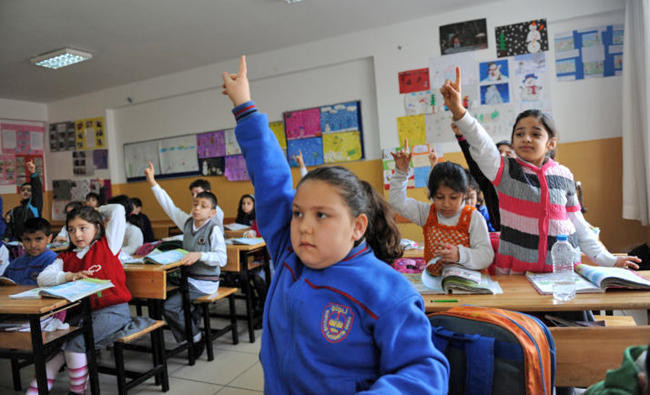
Fledgling radio station aims to be ‘voice of the people’ in Gaza
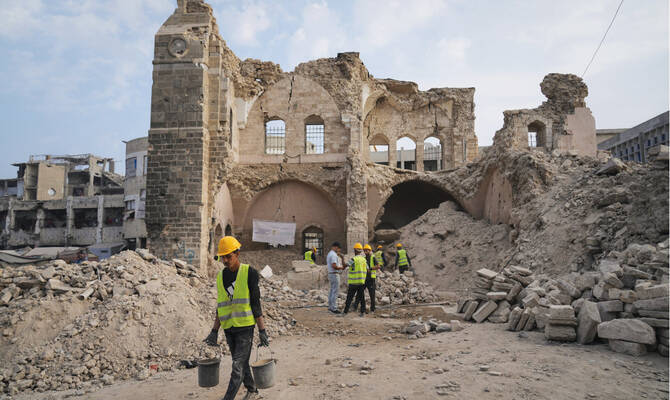
- The electricity crisis is one of the most serious and difficult problems in the Gaza Strip, says Shereen Khalifa Broadcaster
DEIR EL-BALAH: From a small studio in the central city of Deir El-Balah, Sylvia Hassan’s voice echoes across the Gaza Strip, broadcast on one of the Palestinian territory’s first radio stations to hit the airwaves after two years of war.
Hassan, a radio host on fledgling station “Here Gaza,” delivers her broadcast from a well-lit room, as members of the technical team check levels and mix backing tracks on a sound deck. “This radio station was a dream we worked to achieve for many long months and sometimes without sleep,” Hassan said.
“It was a challenge for us, and a story of resilience.”
Hassan said the station would focus on social issues and the humanitarian situation in Gaza, which remains grave in the territory despite a US-brokered ceasefire between Israel and Hamas since October.
“The radio station’s goal is to be the voice of the people in the Gaza Strip and to express their problems and suffering, especially after the war,” said Shereen Khalifa, part of the broadcasting team.
“There are many issues that people need to voice.” Most of Gaza’s population of more than 2 million people were displaced at least once during the gruelling war.
Many still live in tents with little or no sanitation.
The war also decimated Gaza’s telecommunications and electricity infrastructure, compounding the challenges in reviving the territory’s local media landscape. “The electricity problem is one of the most serious and difficult problems in the Gaza Strip,” said Khalifa.
“We have solar power, but sometimes it doesn’t work well, so we have to rely on an external generator,” she added.
The station’s launch is funded by the EU and overseen by Filastiniyat, an organization that supports Palestinian women journalists, and the media center at the An-Najah National University in Nablus, in the occupied West Bank.
The station plans to broadcast for two hours per day from Gaza and for longer from Nablus. It is available on FM and online.
Khalifa said that stable internet access had been one of the biggest obstacles in setting up the station, but that it was now broadcasting uninterrupted audio.
The Gaza Strip, a tiny territory surrounded by Israel, Egypt, and the Mediterranean Sea, has been under Israeli blockade even before the attack on Oct. 7, 2023, which sparked the war. Despite the ceasefire, Israel continues to strictly control the entry of all goods and people to the territory.
“Under the siege, it is natural that modern equipment necessary for radio broadcasting cannot enter, so we have made the most of what is available,” she said.


